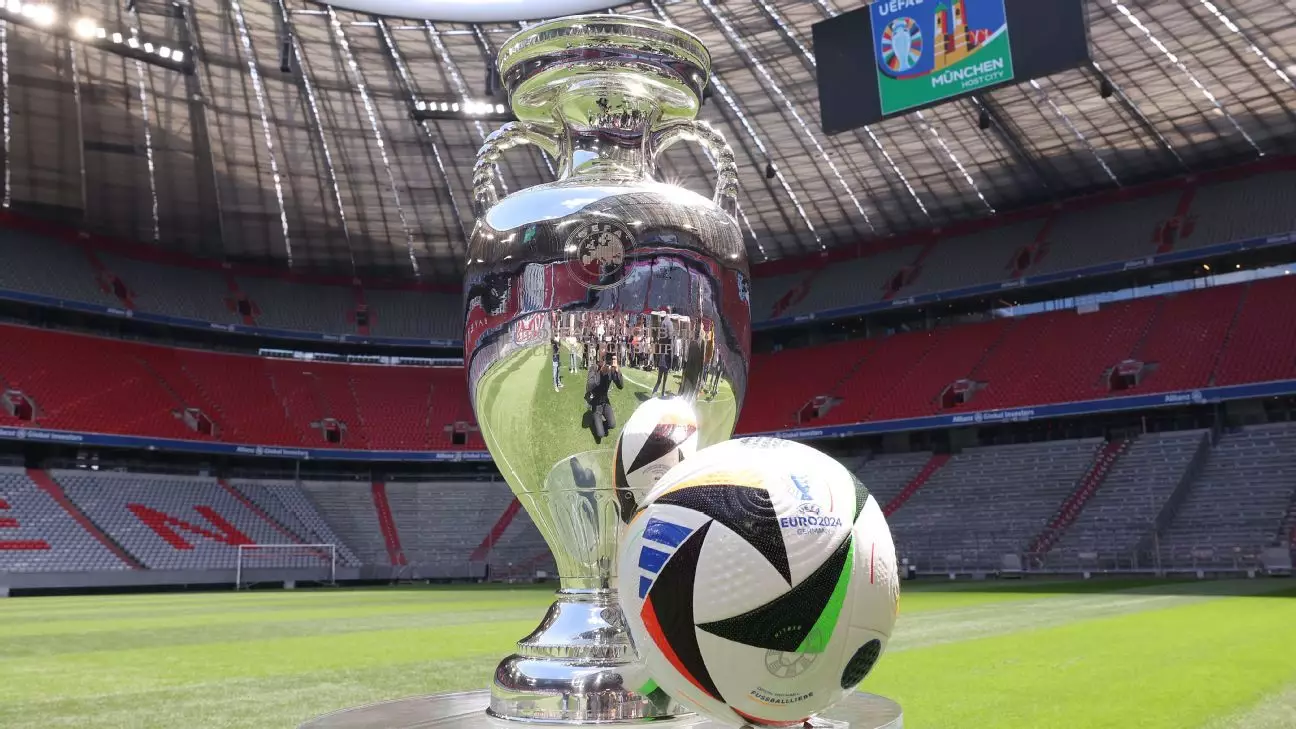In a groundbreaking decision by UEFA’s executive committee, the co-hosts for the 2028 European Championship—England, the Republic of Ireland, Scotland, and Wales—will not enjoy the automatic qualification that typically accompanies hosting duties. In recent years, host nations have often found themselves granted direct access to the finals, providing an enormous advantage and boosting nationwide excitement. However, this time around, they must undertake the rigorous qualification process like every other nation, and the implications of this shift could be extensive.
The committee’s decision to reserve two spots for the best-ranked co-host nations that fail to qualify through the group stage is a double-edged sword. While it offers a glimmer of hope, it fundamentally underscores the potential for failure. The co-hosts will be swept into separate groups, where they will need not just skill but consistency, as only the 12 group winners and eight best runners-up will directly proceed to the finals. This change demands that the nations put forth their best performances not only in terms of talent but also resilience.
Competitive Landscape: A Grind to Glory
With the new qualification structure in play, the competitive landscape for Euro 2028 becomes markedly more rigorous. UEFA has outlined a complex system of playoffs designed to encourage spirited competition. If the two reserved spots for co-hosts are utilized, an additional eight teams will vie for the remaining slots through elimination rounds reminiscent of knockout play. Conversely, if both spots remain unused because all co-hosts qualify, the playoffs will still feature intense matchups.
This desire to elevate competition is admirable but may also serve to create heightened pressure on the co-hosts. The reality that England, once a powerhouse, could find itself in a precarious position like Scotland or Wales—struggling to qualify—alter the expectations drastically. It reflects an evolving football narrative where even storied teams are not guaranteed success and must earn their place among Europe’s elite.
Impact on National Pride and Fan Engagement
The atmosphere surrounding the Euro 2028 will be electrifying, not just because it will occur in the United Kingdom and Ireland, but due to the increased stakes set by UEFA’s decision. The absence of automatic qualification compels fans to actively engage with qualifying matches, fostering national pride and deeper connections with their teams. This is an opportunity for football to become even more significant in the social fabric of these nations.
Consider this: the last Euro championship witnessed England finish as runners-up while Scotland faced early elimination. With Wales and Ireland left out entirely, the narrative was bittersweet. Now, as these co-host nations prepare for 2028 with heightened stakes, supporters will rally around their teams with fervor and anticipation. This mission to qualify transforms what would have been routine preparations into a grassroots movement of pride and ambition.
In essence, the 2028 European Championship qualification rules introduce substantial upheaval that could galvanize or challenge national teams. The co-hosts’ journey to the finals will demand not only skill on the pitch but also support and passion from their fan bases to galvanize their efforts. The beauty of sport lies not just in winning but in the ordeal and the stories we craft along the journey.

Leave a Reply